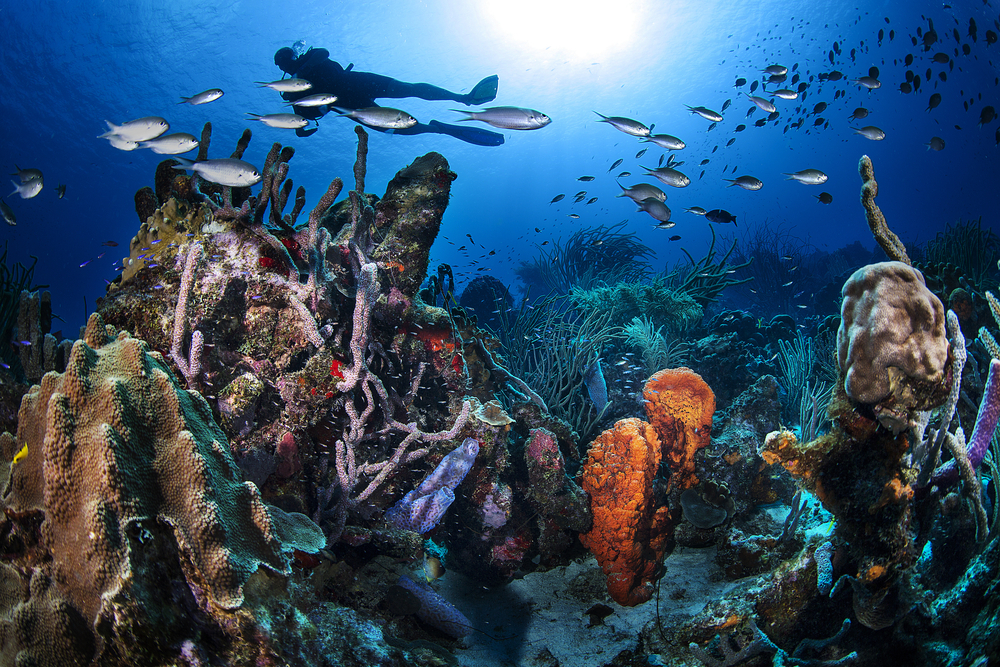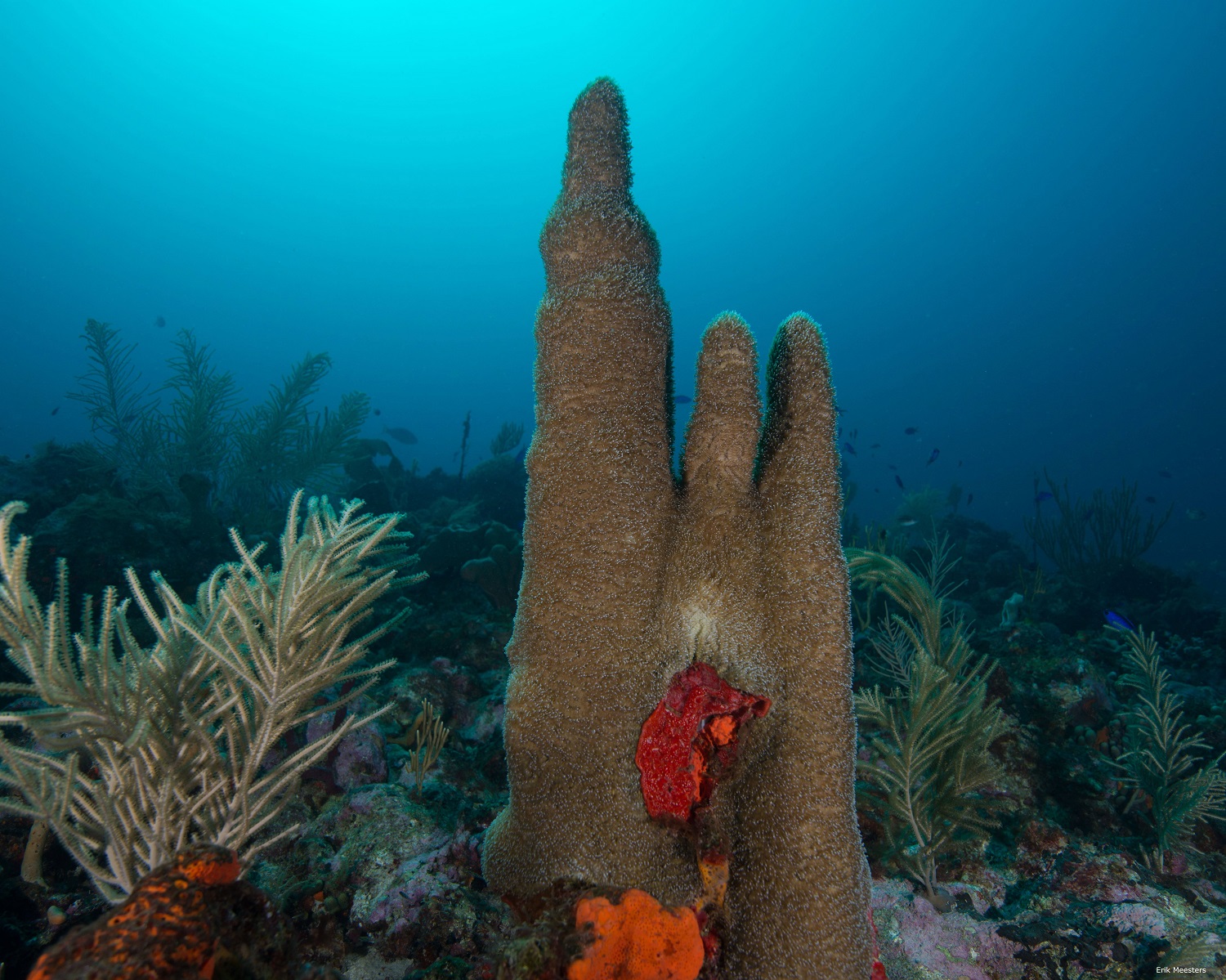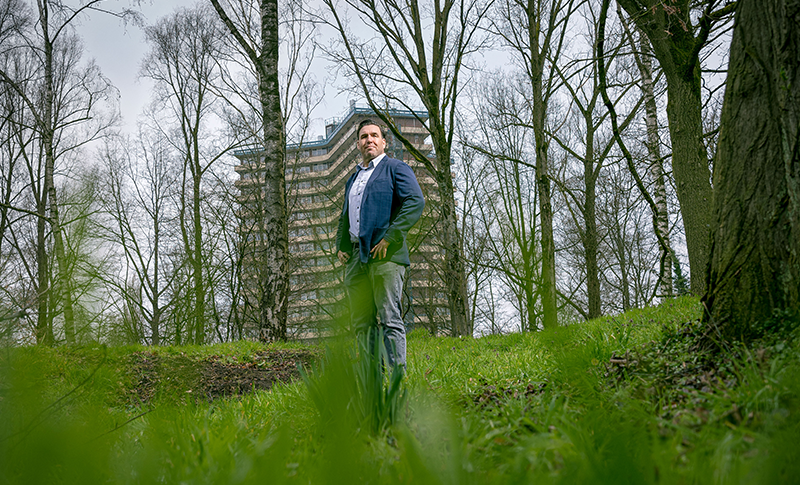Tropical islands are popular holiday destinations. Tourism provides the local inhabitants with a source of income, as well as with a source of waste. The sector is becoming more sustainable, but the differences between the islands are significant. How is this reflected in the condition of the corals?
‘In the past, there was overfishing around the coral reefs, especially if the reef was easily accessible’, says Erik Meesters, marine ecologist at Wageningen Marine Research. He has been studying coral reefs, particularly in the Dutch Caribbean, for over three decades. In the past, from the 1960s to the 1980s, tourism was considered a solution: ‘It generates income for those otherwise forced to fish near the reefs.’
Waste in the seas
There is no longer any serious overfishing in the Dutch Caribbean, but the less affluent islands still face this issue. Moreover, the increase in tourism gave rise to new problems. ‘Tourism in the Caribbean has exploded over the past decades. And with it, the pressure on the environment’, says Meesters. ‘Much like the nitrogen issue in the Netherlands. These islands require a huge import of food for the tourists. They are left with an enormous pile of waste products, which often end up in the ocean.’ The waste pollutes the seas and disturbs a delicate ecological balance. Meesters: ‘Coral thrives in oligotrophic seas. It is a closed system in which all entities are interdependent. The nutrients in the tourism waste streams disturb this equilibrium.’
Enforcement is crucial
Managing waste streams and preventing them from ending up in the sea is crucial. The Netherlands performs well in this respect, according to Meesters. ‘Compared to most other Caribbean islands, the Dutch Caribbean has its affairs in order. The Netherlands classified the Caribbean coasts as protected at an early stage and was one of the first nations to prohibit spearfishing.’ The major difference with the other islands is enforcement. Meesters: ‘The Netherlands and the World Wildlife Fund made funds available for patrol vessels to enforce the legislation for the reefs. Moreover, the Dutch coast guard assists in Curaçao.’
Coral grows slowly, so a mere year with fewer tourists does not show immediately.
Erik Meesters, Marine Ecologist at Wageningen Marine Research
Climate
Tourism was the biggest problem the Dutch Caribbean faced in the last century, says Meesters. Now, the biggest issue is climate change. Meesters does not expect that the blow the tourism industry suffered from Covid-19 will affect the coral. ‘Coral grows slowly, so a mere year with fewer tourists does not show immediately. Moreover, the government provided relief funds for businesses. The Netherlands is so wealthy that people will not easily become dependent on the reef for food’, says Meesters. ‘The sea was also very warm last year, causing more coral to perish.’ This is a problem that eclipses all others. However, Meesters does have a few tips for those visiting the Caribbean and wanting to be as sustainable as possible. ‘Eat vegetarian meals, and certainly no reef fish such as seabass. And, if you go diving, refrain from touching the corals, peeing in the water and use only “good” sunscreens.’
Ten-year plan
In 2020, a second ten-year plan to make tourism in the Dutch Caribbean more sustainable was formulated, the Nature and Environment Policy Plan. Its goals focus on sustainable coastal development, wastewater management, certification of catering businesses and tour operators, and using revenues from the tourism sector to fund nature conservation. Meesters is optimistic: ‘The policy includes many excellent plans. If we implement them all, this will vastly improve the island’s environment and economy. And if we start to really address the global climate issue, everything may be all right.’
Indonesia
Elsewhere in the world, coastal tourism is still in its infancy. In Raja Ampat, in Western Papua, Indonesia, for example. Last year, Meesters participated in an expedition led by Wageningen researcher Lisa Becking. The researchers studied the effect of tourism on marine life. Does the local tourism industry apply the lessons learnt from the Caribbean? ‘Partly yes’, says Meesters, ‘it depends on the entrepreneur. There are resorts that do really well. One island resort, for example, extracts nutrients from waste and recycles them in plant fertilisers so that nothing ends up in the sea. But if the government is lax, much can still go wrong. For example, with cruise vessels dumping their waste in a bay with impunity.’

 Photo: Shutterstock
Photo: Shutterstock 

